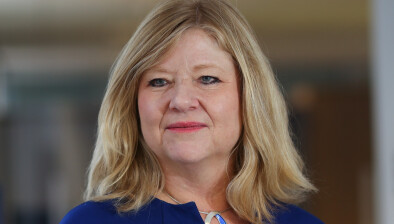Rising inflation set to push UK into recession, KPMG warns

With inflation having reached a 40-year high, fears of a recession have been all but confirmed, according to KPMG’s latest UK economic outlook report.
The invasion of Ukraine and renewed lockdowns in China put upward pressure on commodity prices and keep supply chains under strain. The report predicts UK GDP growth is set to slow to 3.2% this year and is forecast to fall further to 0.7% in 2023.
Just as the UK economy returned to its pre-pandemic size, new shocks hit the global economy. There are growing concerns that policy actions to combat inflation, if combined with further fallouts from geopolitical tensions, could bring about another recession.
KPMG has also developed an alternative scenario to capture some of the downside risks. The forecast models how a sharper deterioration in the external environment causing a recession in some of the UK’s major trading partners, together with a stronger fall in domestic consumer spending, could see the UK economy enter a mild recession next year, with a 1.5% fall in GDP in the year between 2022 Q3 and 2023 Q3.
Yael Selfin, chief economist at KPMG UK, said: “We expect growing external headwinds and weakening domestic momentum to see economic growth slow significantly over the next year, with a significant risk of a mild recession. Manufacturing and financial services look to be among the worst affected sectors in our downside scenario.
“Manufacturing could fall by 5.1% in 2023 and 2.8% in 2024 as the sector tends to be more export intensive, whereas financial services could also see significant losses from a downturn as it raises the potential for significant loan losses and write-offs, with output falling by 8.8% and 2.5% over the next two years.”
Outlook for household incomes, inflation and interest rates
Household budgets have come under pressure as the high and persistent level of inflation erodes consumers’ purchasing power. Although support measures announced by the government have helped to mitigate the expected impact of higher energy bills for the lowest income households, overall household incomes are expected to fall by 0.8% in real terms this year and 0.5% in 2023.
KPMG’s new forecast sees average inflation over 2022 revised to 8.1%, up from 7.9% in its previous report. The peak in UK inflation is likely to lag that in some of the other major economies. Due to regulated energy prices being revised in October, the full impact on UK inflation will likely only materialise in the autumn, with the outlook remaining highly dependent on the evolution of future wholesale gas prices. Inflation will then begin to normalise from 2023 Q2 onwards and return to the Bank of England’s 2% target in 2024 Q2.
The Bank of England has now raised interest rates at five consecutive policy meetings since December 2021, bringing Bank Rate to 1.25%. However, rates are only expected to reach 1.75% by the end of 2022, with a pause in the tightening cycle afterwards to prevent inflation running well below the 2% target in the medium term.
Yael Selfin added: “We expect supply issues to gradually ease during the course of this year, although headwinds in the form of a potential deterioration in Russian energy supply or further lockdowns in China as a result of its zero Covid policy could worsen the outlook.
“Combined with the pressures on household budgets, the Monetary Policy Committee will have to weigh the risk of high inflation spilling into pay growth against the risk of a recession.
“Facing such a trade-off, we think it is likely that the doves on the Committee could swing the balance towards a more gradual uplift than is currently priced in by the markets.”
The Bank for International Settlements (BIS) has highlighted similar concerns in its annual economic report. However, the BIS said a repeat of the 1970s stagflation is unlikely due to improved monetary policy and macroprudential frameworks and less reliance on energy, but warned that the current backdrop of financial vulnerabilities – high debt and overvalued asset prices – could magnify any slowdown.
According to this year’s report, the priority for central banks is to restore low and stable inflation. In doing so, they should seek to minimise the hit to economic activity, thereby safeguarding financial stability. Engineering such a “soft landing” has historically been difficult, and the starting conditions today make it challenging, the BIS said.







